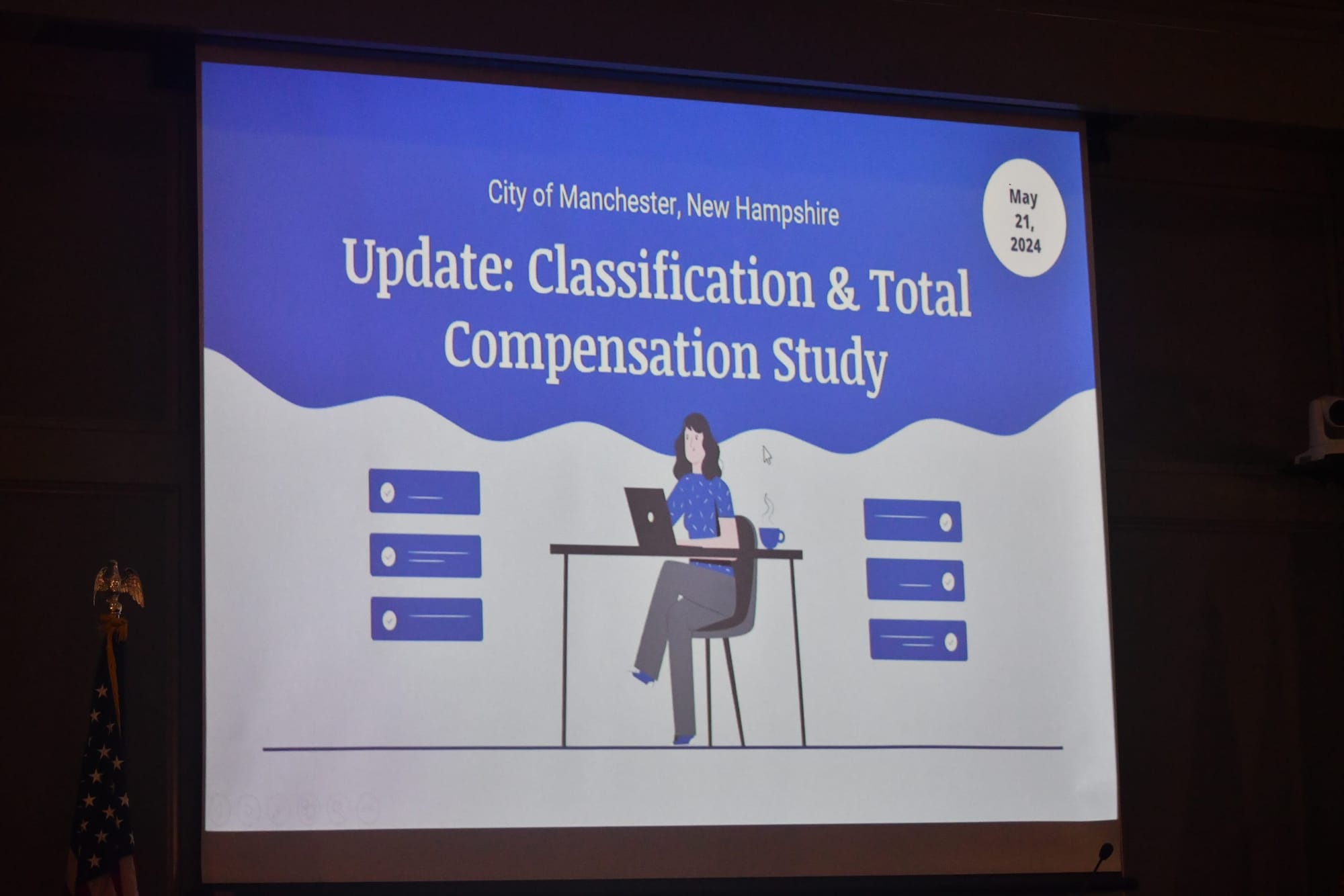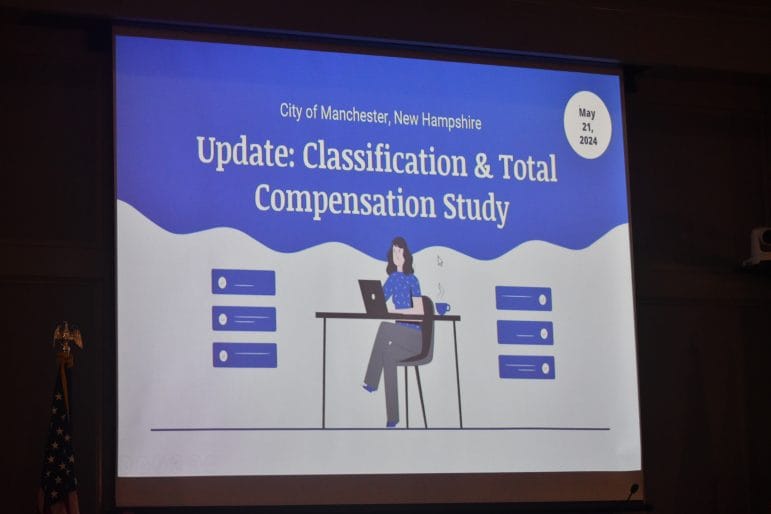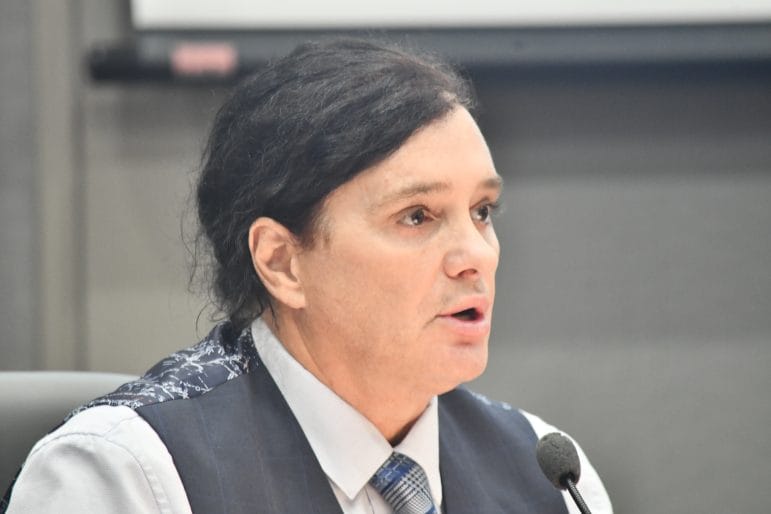City employee study gets unanimous Aldermanic support
Despite receiving a negative recommendation out of committee, a study looking at city employee classification and compensation received unanimous support from the Manchester Board of Mayor and Aldermen (BMA) on Tuesday.


MANCHESTER, NH – Despite receiving a negative recommendation out of committee, a study looking at city employee classification and compensation received unanimous support from the Manchester Board of Mayor and Aldermen (BMA) on Tuesday.
City of Manchester HR Director Lisa Drabik provided an overview of the study, which had been planned as early as 2020 and received up to $750,000 in one-time funding in September 2022, an amount that was later designated that month to come from the city’s CIP funding, which is used for one-time projects and purchases.
Drabik reiterated that the study is approximately 65 percent complete, with work to gather internal data from current city employees and external data from comparable cities gathered. Now the city’s consultant, a company known as Evergreen that has done approximately 1,100 comparable other studies, is set to mesh both sets of data into a set of recommendations for BMA review for city employee compensation as well as a set of proprietary tools the city can use to implement the BMA’s decisions on those recommendations.
She told the board this study was needed due to the complexity of the city’s wage scales, with six separate systems that have grown from the last study by the Yarger-Decker consulting firm in the late 1990s. Over that time frame, what had been 300 different job titles had grown to over 450 as turnover rose to nearly 20 percent. While much of that turnover was due in part to people re-evaluating careers following the COVID-19 pandemic, Drabik also said that it was determined that lower than average pay for entry-level employees was also making employee retention difficult.
Ward 7 Alderman Ross Terrio felt that it was inappropriate to use some of the cities as comparisons to Manchester given their different tax structures and cost of living, such as Cambridge, Mass., and Albany, NY. However, Drabik said that cost-of-living and other factors were taken into account with outliers in the comparison study removed to create an aggregate sample range.

BMA Chair Joseph Kelly Levasseur asked if Drabik came to Manchester from Londonderry for the pay, to which she said she came for the challenge. Levasseur apologized if the question was too personal, with Drabik saying she couldn’t compare her current position to her previous role in Londonderry because there she was also assistant town manager.
Levasseur also said he was concerned over whether the study would replace Yarger-Decker or simply augment it, to which Drabik said it was too soon to determine given that the recommendations are expected to be given to the board this fall regardless of whether the funding came from CIP or elsewhere. Levasseur also initially questioned the scope of the project and asked if updates could be produced without the assistance of a consultant given the malleability of the Yarger-Decker foundation over the years.
Beyond that, Levasseur and other members of the board were generally positive of Drabik’s efforts, with Ward 5 Anthony Sapienza stating that she should be commended after being told that approximately $450,000 of the $750,000 could be returned into CIP if the deadline for its allowed use on the project was to be extended.
Levasseur added his belief that the original opposition in committee came from a miscommunication over the request for the deadline to be pushed to June 30, 2026 and the assumption that more money would be requested with that deadline extension. Ward 1 Alderman Chris Morgan, who led opposition in committee to the deadline extension, said he would not have opposed an extension at the time if he had additional information then regarding the lack of need for more funding.
However, that explanation does not align with the May 7 committee meeting discussion about the deadline extention. Drocik did not say additional money would be needed or requested to complete the study. Morgan’s only question at that time was whether the compensation study would likely result in decreasing salaries for city workers, to which she said “no.”
A vote to receive and file, or kill, the committee recommendation passed 13-0. Then a vote to extend the deadline to June 30, 2025 also passed 13-0.
Following the two votes, Ward 3 Alderman Pat Long made a motion to reconsider the approval of extending the deadline to June 30, 2025, and asked his colleagues to vote no, echoing a common parliamentary tactic in Concord that disallows further discussion on the topic.
While Manchester Mayor Jay Ruais asked if it was necessary given that the vote had been unanimous, Long said he did not want to readdress the issue some night at 1 a.m. The reconsideration vote failed 11-2, with Levasseur and Ward 8 Alderman Ed Sapienza voting in favor of the motion.
Ward 12 Alderwoman Kelly Thomas was absent for all three votes.





